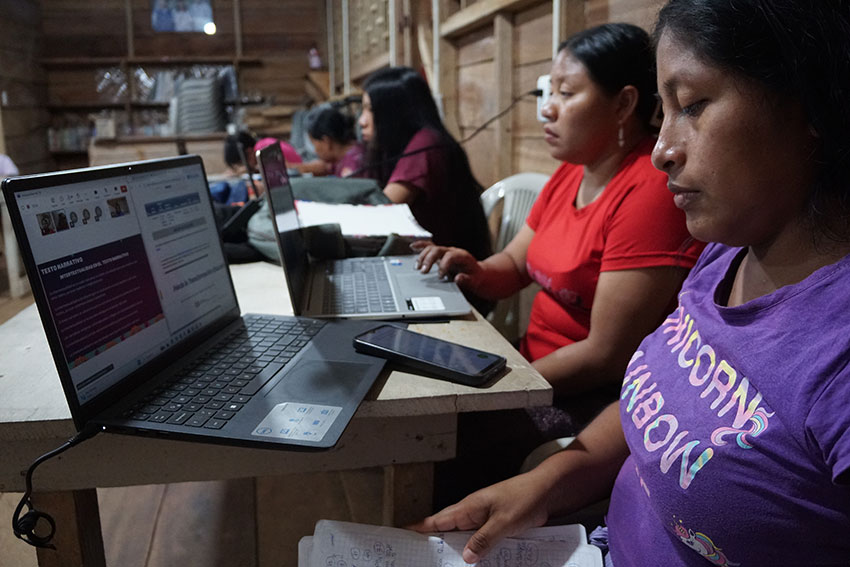International Education Conference IAJU 2022
The Seville Campus of Loyola University hosted the International Education Conference IAJU 2022, which brought together more than a hundred representatives of Jesuit universities from 28 countries around the world, from South Korea and Japan to Argentina, Chile, El Salvador and Mexico, as well as Lebanon, Australia, the United States, Ivory Coast, Burkina Faso, Madagascar, Germany, Sweden and Italy, among others.
This meeting, which was celebrated for the second time after the edition held at the Ibero-American University of Puebla (Mexico) in 2019, brings together vice-rectors and heads of International Relations of Jesuit universities from around the world to establish opportunities for collaboration and networking, strengthen ties andalliances with the aim of working together in the service of the shared mission as institutions of the Society of Jesus.
The various presentations addressed some of the priority lines of work for the universities of the Society of Jesus, which are members of the International Association of Jesuit Universities (IAJU), the largest network of higher education institutions in the world, comprising 180 institutions on all five continents. Thus, the need to strengthen networking was highlighted, always combining local and global strategies, in order to better respond to the challenges of the 21st century, and to train students as global citizens, with a vocation to improve the world.
The largest global educational network
One of the central conferences of this congress was given by Joseph Christie SJ, Secretary for Higher Education of the Society of Jesusand President of IAJU, who considered this meeting to be "fundamental for the exchange of experiences and good practices, as well as for joint reflection". During his speech, Christie recalled that "the higher education institutions of the Society of Jesus constitute the largest global educational network" and therefore "we have a great responsibility before us".
He said that "today more than ever we need to train students to make them aware, with a global perspective, of the need to face global challenges such as the growth of nationalism, the growing hostility towards other cultures or religions, or climate change".
"We are living in an era of globalisation marked by interdependence and interconnectedness, facilitated by new technologies, so it is critical to establish greater collaboration to share strengths and result in greater synergies," said Christie.
Fostering networked partnerships as a key to the successful internationalisation of education
The conference also included the participation of the Executive Vice-President of the Jesuit NGO Entreculturas, Daniel Villanueva SJ,Trustee of the ESADE Foundation and the ICAI Foundation - Universidad Pontificia Comillas, who spoke about collaboration and networking as a hallmark of the Society of Jesusand as the best way to respond to the mission of Jesuit university institutions.
Leaders of higher education institutions and associations also participated, such as Alfonso Gentil Álvarez-Ossorio, director of SEPIE (Spanish Service for the Internationalisation of Education), who explained the composition of the EU strategy and in particular the Erasmus+ funds, within which Loyola University has applied this year for 22 mobility projects with an international dimension to strengthen the network collaboration with the institutions that make up this international IAJU network. He also gave a series of perspectives for maximising European funds, including the important European Universities initiative in which Kircher Network, a European Jesuit university network, also wants to participate.
Then there was Laura Rumbley's intervention, Director of Research and Knowledge at the European Association for International Education (EAIE), the largest association of higher education educators in Europe, recently held its annual conference in Barcelona, with the largest number of participants to date, more than 6,000. Both Gentil and Rumbley addressed the challenges facing the higher education sector in Spain and the worldand agreed on the importance of fostering networked partnerships as a key to the successful internationalisation of education in the current global context.
Jesuit universities in Africa
The representatives of Jesuit universities in Africa, led by François Kaboré SJ - president of the Association of Jesuit Universities in Africa- presented the situation of higher education in Africa, pointing out that the youth and the potential of African Jesuit universities require collaboration and exchange with the rest of the global Jesuit network to continue to grow and fulfil their mission of facilitating access to education. Loyola, as the southernmost Jesuit and Catholic university in Europe, is also working on capacity building projects for the nine university initiatives that are being developed in different African countries. All the African representatives came with financial support from the Erasmus+ programme.
Among the conclusions drawn at the end of the programme of presentations and exchanges, Borja Martín Garrido, Director of International Relations at Loyola University, noted that the association must gain visibility, for example, by seeking synergies with professional associations such as the European EAIE, the American AEIA and NAFSA and the Asian APAIE, so that Jesuit universities are represented in these groups with their own voice. He also mentioned the need for a more egalitarian international representation within the association that would allow us to learn more from other realities such as those experienced in Africa or Southeast Asia and, above all, to create a common identity under a culture of generosity.
Martin, as coordinator of the conference, informed the Secretary of Higher Education about the creation of a steering committee in IAJU that would have two representatives from each region and that would be in charge of drafting and proposing the goals, mission and vision of the association for the next conference in the field of international relations.
In addition to the plenary sessions, the congress included parallel activities, meetings of the different regional associations and various cultural visits to the cities of Seville and Cordoba.






